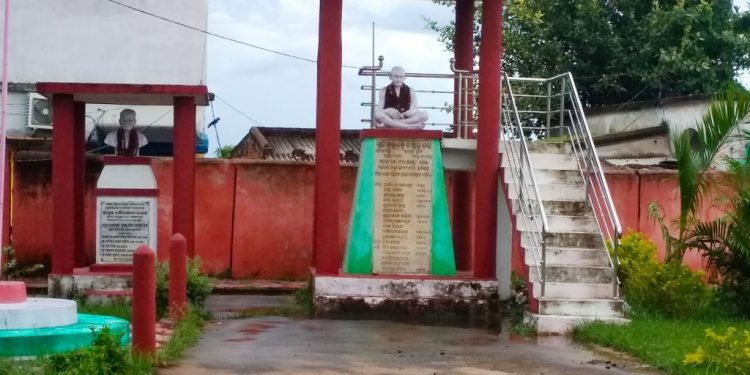Erasama: Erasama revolution is a vivid reminder of the deep seated anger of the people against the British rule in India and the supreme sacrifice of locals in the freedom movement as residents observed Erasama Diwas commemorating the occasion, Monday.
Residents in Erasama torched a British police station on this day, September 6, 1942 as they responded to the Quit India Movement call of Mahatma Gandhi in equal note.
Eminent freedom fighter and Erasama’s first MLA late Gouri Shyam Nayak had led the agitation September 6, 1942. Nayak had formed a youth outfit named Shanti Sevak Samiti and had united all like-minded people against the British government under its umbrella.
The freedom fighters responding to the do or die call and Quit India Movement by Mahatma Gandhi had set ablaze the then British police station at Erasama block headquarters.
The incident shook the British government but it acted promptly and arrested hundreds of freedom fighters and lodged them at Narsinghpur Kothi where they were meted out inhuman treatment.
The daring act by the locals in 1942 against the then British government is commemorated every year as Erasama Diwas. The residents in remembrance of the freedom fighters had built a memorial at Erasama Gandhi Square where they gather on this day and pay their homage to the departed freedom fighters.
After the country got independence, Nayak became the first MLA from Erasama and had established Sangrami Bhawan Gandhi Pitha at Erasama and a memorial pillar for the freedom fighters.
According to a book ‘Sangrami Smarane’ written by Subhanarayan Swain, many eminent persons strengthened the freedom movement and led the agitation from front.
Baishnab Patnaik and Shaymsundar Kanungo from Hajipur village, Hadibandhu Swain from Dihasahi and Adikanda Sethi of Goudsahi led the freedom fighters from the block and from neighbouring Kujang area.
Nayak organised them and led them to the block headquarters where they torched the British police station as a mark of protest and their deep running anger against the British rule.







































